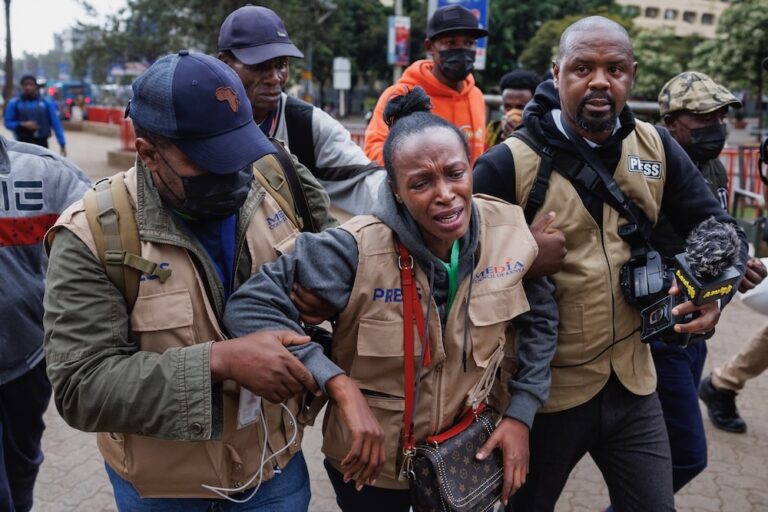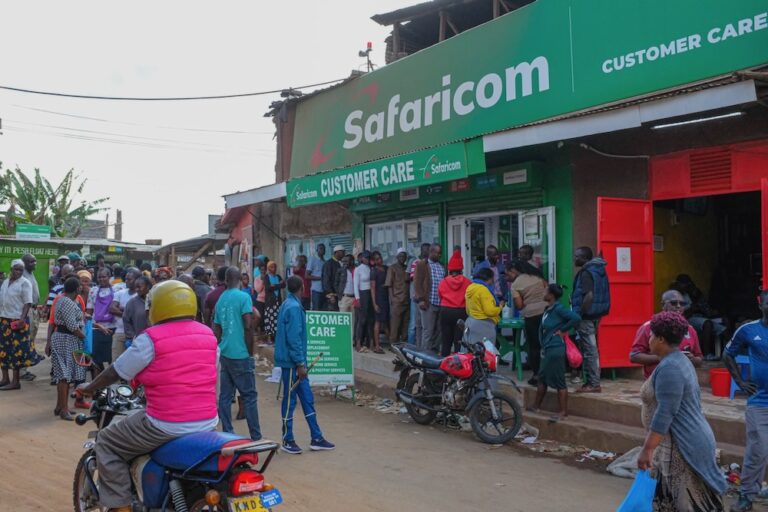(WiPC/IFEX) – The Writers in Prison Committee (WiPC) of International PEN protests the arrest and alleged police assault of Philo Ikonya and Fwamba N C Fwamba, President and member of Kenyan PEN respectively, in Nairobi on 18 February 2009. The writers were reportedly arrested while taking part in a peaceful protest and severely beaten while […]
(WiPC/IFEX) – The Writers in Prison Committee (WiPC) of International PEN protests the arrest and alleged police assault of Philo Ikonya and Fwamba N C Fwamba, President and member of Kenyan PEN respectively, in Nairobi on 18 February 2009. The writers were reportedly arrested while taking part in a peaceful protest and severely beaten while in police custody. Ikonya and Fwamba, who both required hospital treatment following the attack, have been denied the right to lodge an official complaint against the police officer who assaulted them. The WiPC reminds the Kenyan authorities of its duty to protect its citizens, including their right to freedom of expression, assembly and peaceful protest, as well as freedom from cruel, inhuman or degrading treatment or punishment. It calls on the authorities to conduct a full and impartial investigation into the alleged police assault as a matter of urgency and to ensure the perpetrators are brought to justice.
Ikonya is an author, human rights activist and the President of Kenyan PEN; Fwamba is an internet writer and a member of Kenyan PEN. Both were arrested on 18 February for taking part in a peaceful protest against hyperinflation and the rising price of maize flour in the midst of the current famine, which is reportedly threatening 10 million Kenyans. They were arrested outside the Kenyan parliament along with activist Patrick Kamotho, a member of Bunge la Mwananchi (People’s Parliament, a civil society forum purporting to offer an alternative to the official Kenyan National Assembly).
All three were reportedly severely assaulted while in police custody, in the case of Ikonya and Fwamba while being taken to the central police station in Nairobi. The attack on Ikonya included a police officer grabbing her near her breasts, ripping her clothes and threatening to kill her and Fwamba. According to Ikonya, the same police officer carried out a similar assault on another female activist, Ann Njogu, in 2008 but despite this has since been promoted.
Ikonya was released on bail late on the night of 18 February following intervention by lawyers and local campaigners and associated media coverage, while Fwamba and Kamotho were held overnight at separate police stations. All three appeared at the High Court on the morning of 19 February, where they were charged with “taking part in an unlawful assembly” and released on bail of 10,000 Kenyan Shillings (approx. US$125) each.
Both Ikonya and Fwamba were hospitalised following their release to receive treatment for injuries sustained during the assault. Ikonya was taken directly to Nairobi Women’s Hospital with considerable bruising to the neck, chin and underarm area and her left hand. She was also suffering from anxiety related to her treatment in custody. She was discharged on 21 February and as of 23 February said she was making a good recovery from her physical injuries. Fwamba was admitted to the men’s section of the same hospital later on 19 February with stomach pain, from which he was still suffering as of 23 February.
Ikonya and Fwamba have attempted to lodge a complaint against the police officer who assaulted them but this has been denied on three successive occasions. The first time, on the night of their arrest, the officers at the police station reportedly removed the complaints book, saying that they were not allowed to make a complaint against their “boss” and advising the writers that they would have to approach the Commissioner of Police directly. Ikonya and Fwamba are currently in the process of producing an affidavit to act as evidence against the police officer concerned.
Ikonya has been involved in a number of protests and political readings recently and believes that the arrest and assault are related to her outspokenness on political matters. “The thing (the authorities) are most angry about is my voice,” she says.


